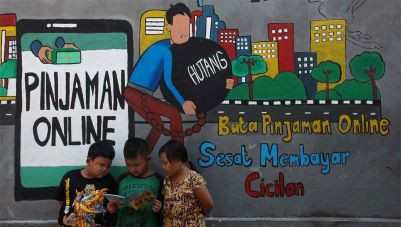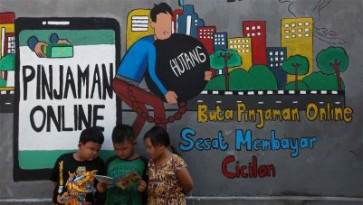Popular Reads
Top Results
Can't find what you're looking for?
View all search resultsPopular Reads
Top Results
Can't find what you're looking for?
View all search resultsA pathway to revealing financial reputation, creditworthiness
Indonesian lenders have resorted to the behemoth tasks of validating non-standardized proof of income, lengthy bank statements and credit bureau repayment records to understand the reputations of applicants.
Change text size
Gift Premium Articles
to Anyone
W
hen we search "financial reputation" online, the results often refer to the reputational risk of a business entity. Investopedia defines reputational risk as a “threat or danger to the good name or standing of a business or entity”. In financial services, we usually associate financial reputation with creditworthiness.
Overborrowing, delinquency on repayments and attempting to defraud financial institutions are detrimental to various degrees to a person's financial reputation. A bad reputation leads to a loss of trust, thus leading to a loss of access to various financial products or to a punitive cost of borrowing.
The Financial Services Authority (OJK) 2019 National Survey on Financial Literacy and Inclusion (SNLIK) showed a financial literacy index of 38 percent and a financial inclusion index of 76.2 percent. Although still challenging, these have improved from the 2016 results of 29.7 percent and 67.8 percent, respectively.
To increase such literacy, we need to provide more access. To obtain access, the first hurdle is Know Your Customer (KYC). Nowadays, KYC is supported by the digitization of national identity. However, KYC should not stop at identity verification but needs to continue with fraud prevention, ensuring access to financial products for those that are genuinely in need.
Subsequently, for credit products, lenders need to validate creditworthiness. Lenders spend the lion’s share of their resources gathering the information to figure out the financial reputation of the applicants, which mostly leads to varying results. Such variance is due to information asymmetry, which is contributed by the following factors.
The first is the nature of the users. Aside from bad actors that try to defraud financial institutions, there is a growing segment of genuine borrowers which has insufficient information on their credit standing. This is the thin-file segment. Either they lack the credit experience, are new to employment or are a micro or small business owner (MSME).
Second are data security concerns. Some applicants are reluctant to share their data with the lenders, citing safety and security concerns.



















